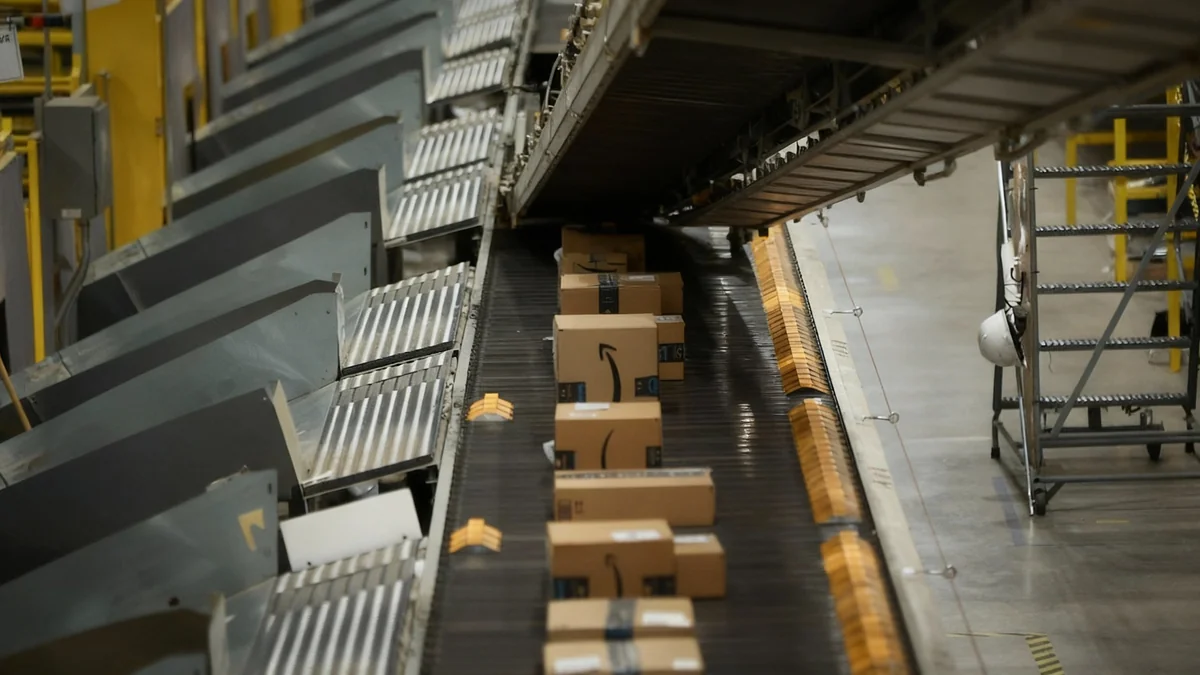As concerns grow over artificial intelligence impacting the job market, a new analysis of labor data reveals a category of fast-growing, entry-level careers that are highly resistant to automation. These roles, primarily in skilled trades, healthcare, and renewable energy, offer annual salaries of approximately $50,000 or more and do not require a four-year college degree.
The findings suggest that jobs requiring a physical presence and uniquely human skills—such as empathy, critical thinking, and on-the-fly problem-solving—are not only surviving but thriving. Projections indicate these fields will expand at or above the average job growth rate of 5% through 2034, offering a stable career path for new entrants to the workforce.
Key Takeaways
- A new analysis identifies several entry-level jobs with strong growth potential that are unlikely to be replaced by AI.
- These roles typically pay around $50,000 annually and do not require a bachelor's degree.
- Key sectors include healthcare, renewable energy, and skilled trades, which are currently experiencing worker shortages.
- The jobs are considered AI-resistant due to their reliance on human skills like empathy, adaptability, and physical interaction.
The Human Element as a Career Shield
In an era where software can write code and algorithms can design products, the most valuable professional asset may be human intuition. The jobs identified as secure from AI disruption all share a common thread: they depend heavily on skills that machines cannot yet replicate effectively.
According to career analysts who study labor trends, these roles involve complex, real-world interactions with unpredictable variables. “AI can process vast amounts of data, but it struggles when dealing with the moving parts and human elements of a dynamic situation,” one expert explained. This is particularly true in roles that require hands-on work and direct human contact.
While technology is a tool in these fields, it is not a replacement for human judgment and physical presence. These are evolving into human-plus-technology careers, where AI assists but does not automate the core functions.
The resilience of these jobs stems from three core areas:
- Complex Problem-Solving: Responding to unexpected issues on-site, such as a plumbing emergency or a patient's sudden change in condition.
- Interpersonal Communication: Building trust with patients, clients, or team members through empathy and clear communication.
- Physical Dexterity: Performing tasks that require skilled, hands-on manipulation in unpredictable environments.
High-Demand Industries with Open Doors
The analysis highlights specific sectors where demand for workers is outpacing supply. This trend creates significant opportunities for individuals seeking entry-level positions with long-term security and competitive pay.
Skilled Trades and Technicians
For decades, a cultural emphasis on four-year degrees led to a decline in people entering the skilled trades. This has created a significant labor shortage and, consequently, high demand for qualified professionals.
Skilled Trades by the Numbers
The demand for skilled trades is robust. For example, the need for heating, air conditioning, and refrigeration mechanics is projected to grow steadily, driven by new construction and the need to upgrade older, less efficient systems. These roles often require a postsecondary nondegree certificate and offer stable, well-compensated employment.
Jobs in this category include roles such as electricians, plumbers, and HVAC technicians. These careers require technical school certificates or associate degrees, followed by licensure. They are inherently AI-resistant because they involve diagnosing and fixing physical systems in unique settings, a task that requires a physical presence and adaptable thinking.
The Expanding Healthcare Sector
The healthcare industry continues to be a major source of job growth, a trend accelerated by an aging population and workforce changes following the COVID-19 pandemic. Many experienced healthcare workers retired or left the field, creating a vacuum that needs to be filled.
Entry-level roles like physical therapist assistants and diagnostic medical sonographers are seeing particularly strong growth. These positions require an associate degree and licensure but offer a direct path into a stable and rewarding field.
These jobs are secure because they are centered on patient care, which demands empathy, communication, and the ability to respond to non-verbal cues—all areas where humans far outperform AI.
Powering the Future with Renewable Energy
As the world transitions to greener energy sources, the demand for technicians who can build and maintain this infrastructure is surging. Wind turbine technicians, for example, represent one of the fastest-growing occupations.
This role typically requires a postsecondary certificate in wind energy technology. It is a hands-on job that involves working at heights in various weather conditions to inspect, troubleshoot, and repair complex machinery. The physical nature and specialized skills make it an unlikely candidate for automation.
How to Position Yourself for Success
For those entering the job market or considering a career change, focusing on these AI-resistant fields could be a strategic move. Experts advise that preparation is key to landing these sought-after positions.
Building a Competitive Edge
Career strategists recommend gaining hands-on experience through internships, apprenticeships, or even volunteer opportunities. This not only builds practical skills but also demonstrates a genuine interest in the field. When applying for jobs, it is crucial to highlight transferable skills that are valuable in any hands-on profession.
Job seekers should emphasize abilities such as:
- Teamwork and Collaboration: Provide examples of working effectively with others to solve a problem.
- Attention to Detail: Showcase precision and care in previous work or academic projects.
- Effective Communication: Demonstrate the ability to explain complex issues clearly and listen to client or patient needs.
Instead of fearing displacement by technology, prospective workers are encouraged to focus on what they can control. “The best approach is to be adaptable, continuously learn new skills, and actively seek out opportunities in these growing sectors,” a career expert noted. By focusing on developing uniquely human talents, workers can build careers that are not just secure, but essential.





